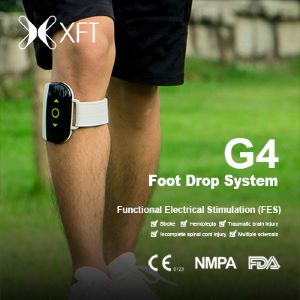Clinical Practice
Neurological Education Module for Foreign Language Interpreters Working in Inpatient Rehabilitation
Tuesday, October 31, 2023
12:00 AM - 1:00 AM
Location: VIRTUAL

Lauren Tusar, MA CCC-SLP, CBIS
Speech Language Pathologist
University of Pittsburgh Medical Center (UPMC) Rehabilitation Institute
Monroeville, Pennsylvania, United States
Poster Presenter(s)
Research
Objectives: To provide education to interpreters working on a traumatic brain injury IPR unit with patients of Limited English Proficiency (LEP), and to improve confidence of interpreters working with this population.
Design: Descriptive research was completed to study interpreters' level of confidence and knowledge when working with the traumatic brain injury population. A confidence survey, a knowledge test, and an education module in the form of a PowerPoint were created.
Setting: The study was completed at UPMC Mercy Hospital in Pittsburgh, PA on the Traumatic Brain Injury IPR Unit
Participants: Five community based, UPMC vendor-approved interpreters. All spoke different languages (Spanish, Nepali, Swahili, Punjabi, Turkish). No specific selection process enforced.
Interventions: An educational module about brain injury was created for interpreters to review, as well as a confidence survey and knowledge test were given to each interpreter before and after reviewing the educational module. The interpreters were given one day to review the education module.
Main Outcome Measures: The Likert Scale on the confidence survey was a scale of 0-5 (0 being not confident, and 5 being completely confident). The maximum score on the confidence survey was a 25. On the knowledge test, there were 5 multiple choice questions, with a maximum score of 5 points on the test (one point for each correct answer).
Results: The confidence survey scores improved for most interpreters after reviewing the module. The knowledge test scores either improved or remained the same in all interpreters. The greatest gains in knowledge test score occurred in interpreters who had limited neurological knowledge prior to taking the test, despite having confidence in their skills.
Conclusions: The results likely indicate that the educational module was helpful in improving knowledge and confidence for interpreters. This was a pilot study with a small sample size. It would be beneficial to increase the sample size and create a satisfaction survey for rehab staff to gauge their impression of effectiveness of the intervention.
Author(s) Disclosures: I have no Relevant Financial Relationships or Relevant Non-Financial Relationship to disclose.
Objectives: To provide education to interpreters working on a traumatic brain injury IPR unit with patients of Limited English Proficiency (LEP), and to improve confidence of interpreters working with this population.
Design: Descriptive research was completed to study interpreters' level of confidence and knowledge when working with the traumatic brain injury population. A confidence survey, a knowledge test, and an education module in the form of a PowerPoint were created.
Setting: The study was completed at UPMC Mercy Hospital in Pittsburgh, PA on the Traumatic Brain Injury IPR Unit
Participants: Five community based, UPMC vendor-approved interpreters. All spoke different languages (Spanish, Nepali, Swahili, Punjabi, Turkish). No specific selection process enforced.
Interventions: An educational module about brain injury was created for interpreters to review, as well as a confidence survey and knowledge test were given to each interpreter before and after reviewing the educational module. The interpreters were given one day to review the education module.
Main Outcome Measures: The Likert Scale on the confidence survey was a scale of 0-5 (0 being not confident, and 5 being completely confident). The maximum score on the confidence survey was a 25. On the knowledge test, there were 5 multiple choice questions, with a maximum score of 5 points on the test (one point for each correct answer).
Results: The confidence survey scores improved for most interpreters after reviewing the module. The knowledge test scores either improved or remained the same in all interpreters. The greatest gains in knowledge test score occurred in interpreters who had limited neurological knowledge prior to taking the test, despite having confidence in their skills.
Conclusions: The results likely indicate that the educational module was helpful in improving knowledge and confidence for interpreters. This was a pilot study with a small sample size. It would be beneficial to increase the sample size and create a satisfaction survey for rehab staff to gauge their impression of effectiveness of the intervention.
Author(s) Disclosures: I have no Relevant Financial Relationships or Relevant Non-Financial Relationship to disclose.
Learning Objectives:
- Learners will gain an understanding of the limitations in baseline knowledge of acquired brain injury and associated neurologic deficits that community-based language interpreters may have.
- Learners will understand the role of language interpreters, and their importance in providing culturally competent care in the rehabilitation setting.
- Learners will be able to identify outcome disparities in LEP patients, and considerations to take when working with these patients and language interpreters in a neurological rehabilitation setting to maximize positive therapy outcomes.

.jpg)
